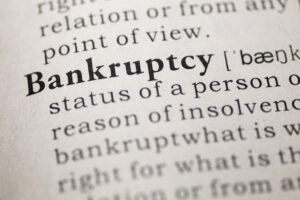 If you are struggling with debt and you don’t earn much income, you may be – very understandably – wondering how you’re ever going to manage to get ahead. Thankfully, there are debt management and debt relief options available to low-wage earners. One of these opportunities involves applying for debt relief under Chapter 7 of the U.S. Bankruptcy Code. By learning the ins and outs of this process, you can make an informed decision about whether taking advantage of this opportunity may be advantageous to you at this time.
If you are struggling with debt and you don’t earn much income, you may be – very understandably – wondering how you’re ever going to manage to get ahead. Thankfully, there are debt management and debt relief options available to low-wage earners. One of these opportunities involves applying for debt relief under Chapter 7 of the U.S. Bankruptcy Code. By learning the ins and outs of this process, you can make an informed decision about whether taking advantage of this opportunity may be advantageous to you at this time.
Eligibility
As an experienced bankruptcy lawyer – including those who practice at The Law Offices of Ronald I. Chorches – can clarify in greater detail, Chapter 7 bankruptcy relief is not an opportunity extended to everyone. Only those individuals (and married couples filing jointly) who don’t earn much in wages are eligible to file for Chapter 7 bankruptcy relief. Individuals and couples who don’t meet the income thresholds determined by law often opt to file for Chapter 13 bankruptcy instead.
The reason that Chapter 7 bankruptcy has such narrow eligibility criteria is that Chapter 7 filers aren’t required to pay back any of their debt before their eligible accounts are discharged. Meaning, filers don’t need to repay any portion of their eligible non-secured debts before a court can order that these debts fully forgiven. As the rights of creditors should not be infringed upon unnecessarily, the government preserves this extreme debt-relief option for individuals and families who are highly unlikely to be in a position to repay their debts in-full any time soon.
Drawbacks
There is one primary drawback to the Chapter 7 process that applies to all filers and another that only applies to a rare few. The major drawback that applies to all filers involves the dip in credit score that occurs upon submitting a bankruptcy petition. Although many filers find that they’re in a better place to rebuild their credit after their debts are no longer weighing them down, it’s important to understand that your credit will take a hit temporarily in the wake of filing for debt relief.
Very few filers also struggle with the authority entrusted in the trustee assigned to their cases. Bankruptcy trustees are empowered to sell non-exempt assets owned by filers. Most Chapter 7 filers don’t own non-exempt property but those that do risk having that property sold to repay their creditors.
Benefits
Most unsecured debts are eligible for automatic discharge at the conclusion of a successful Chapter 7 bankruptcy process. Unsecured debts, like credit cards, aren’t tied to collateral in the ways in which auto loans and mortgages are.
Additionally, the benefits of the automatic stay can make a big difference in the lives of some filers. When a bankruptcy petition is filed, most creditors are told to immediately cease any collections activities until the filer’s case has been fully resolved. If you’re being sued or your wages are being garnished, this halt to collections actions can serve as a welcome relief.


